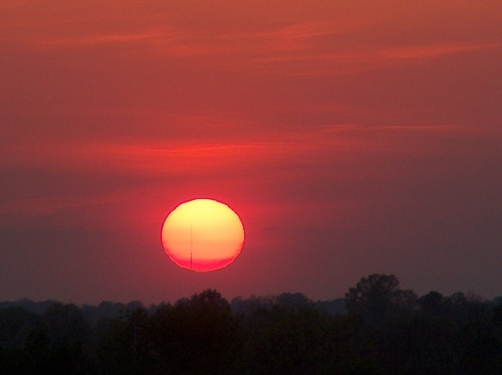HAMILTON – Sources said an elderly woman in Monroe County has died as the result of the excessive heat indices that have swept the state in recent days. Earnestine Fields was found by relatives Saturday afternoon about 75 yards from her home. Monroe County Coroner Alan Gurley said Fields died of a heatstroke.
WTVA reported that Fields, an 81-year old black woman, was found on the back porch of a family member’s house after other relatives went to her residence to check on her.
WTVA also reported that Fields was found on the west side of the home, which likely put her in direct sunlight. The National Weather Service said the heat index on Saturday reached 104.
Meteorologists said the sun in Hamilton on July 31 likely reached its peak between 12:45 and 1 p.m.
The coroner said Field’s age and medical history also contributed to her death.
Phil Baker, a meteorologist with the National Weather Service in Memphis, said Hamilton, which is located near West Point and Columbus, is an area that can experience higher dew points and humidity resulting in higher heat indices.
“When the humidity is high, perspiration on the skin can not evaporate,” Baker said, “and that’s what the body counts on to cool itself. When it’s humid out, the body’s ability to keep itself cool is compromised.”
Baker said that while the sun plays a large role in the heat index, people should exercise caution when working or going outside in extreme temperatures.
“Anytime from noon to 6 p.m. is going to be a combination of the highest temperatures and sun angle,” he said. “And the general rule is stay hydrated and in the shade if you can. But some people have a job to do which doesn’t allow them to get under the shade and the sun is an additional drag on the body.”
Heat is the number one weather-related killer in the United States. The National Weather Service statistical data shows that heat causes more fatalities per year than floods, lightning, tornadoes and hurricanes combined. Based on the 10-year average from 2000 to 2009, excessive heat claims an average of 162 lives a year. By contrast, hurricanes killed 117; floods 65; tornadoes, 62; and lightning, 48.
In the disastrous heat wave of 1980, more than 1,250 people died. In the heat wave of 1995 more than 700 deaths in the Chicago area were attributed to heat. In August 2003, a record heat wave in Europe claimed an estimated 50,000 lives.
The National Weather Service has already predicted that the dangerous heat wave in Mississippi will increase by week’s end with some areas expected to reach 103 degrees and heat indices to peak at 115.
Experts say if you must go outside:
- Slow down. Reduce, eliminate or rescheduled strenuous activities until the coolest time of the day. Children, seniord and anyone with health problems should stay in the coolest available place, not necessarily indoors.
- Dress for summer. Wear lightweight, light-colored clothing to reflect heat and sunlight.
- Put less fuel on your inner fires. Foods, like meat and other proteins that increase metabolic heat production also increase water loss.
- Drink plenty of water or other non-alcohol or decaffeinated fluids. Your body needs water to keep cool. Drink plenty of fluids even if you don’t feel thirsty. Persons who have epilepsy or heart, kidney, or liver disease, are on fluid restrictive diets or have a problem with fluid retention should consult a physician before increasing their consumption of fluids. Do not drink alcoholic beverages and limited caffeinated beverages.
- During excess heat period, spend more time in air-conditioned places. Air conditioning in homes and other buildings markedly reduces danger from the heat. If you cannot afford an air conditioner, go to a library, store or other location with air conditioning for part of the day.
- Don’t get too much sun. Sunburn reduces your body’s ability to dissipate heat.
- Do not take salt tablets unless specified by a physician.
The Centers for Disease Control also recommends, that you:
- Monitor people at high risk such as elderly or infirm relatives and neighbors.
- Don’t leave children in cars, and
- Pace yourself. Even healthy people can get sick during hot weather


Be the first to comment